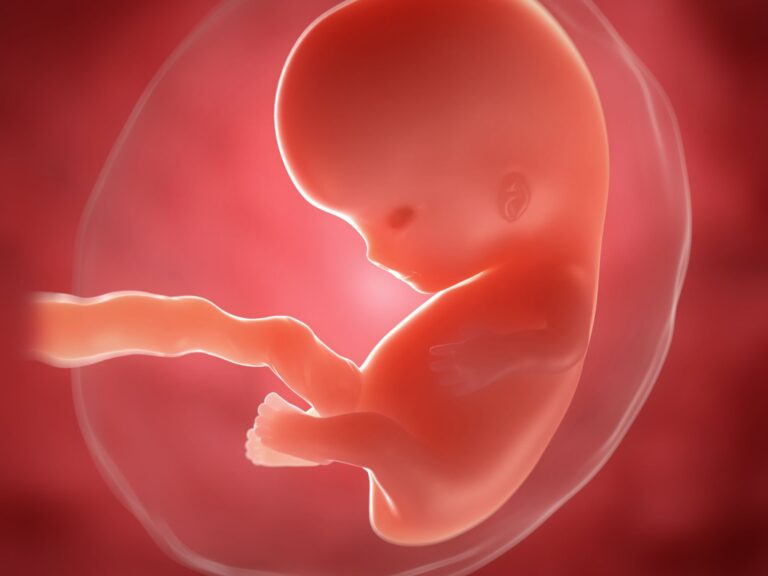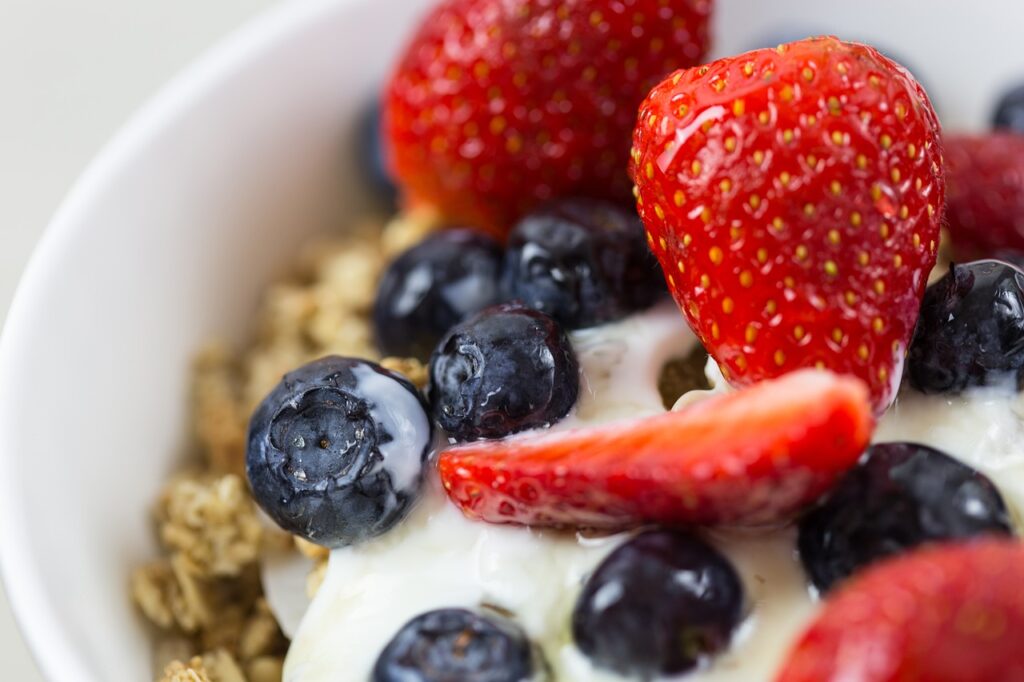5 weeks pregnant: Pregnancy Symptoms & Baby Development
Read time: 4 minutes
5 weeks pregnant is how many months?
Month 2 (Trimester 1)
Baby development at 5 week
Your baby’s vital organs are developing fast, including their heart¹.
Vitamin A
Discover the role Vitamin A plays in your baby’s development.
Keeping healthy
Learn how to stay active safely throughout your pregnancy.
Baby development at 5 weeks

What does my baby look like? And, what size is my baby?
In week 5 of pregnancy, your baby, technically called an embryo, measures a little over 1mm long1 – that’s roughly the size of a sesame seed. But already their brain, spinal cord and blood vessels are beginning to develop, albeit on a microscopic scale2. Their circulatory system is also developing and it’s at around the end of week 5 that your baby’s heart starts to beat1.
Meanwhile, the umbilical cord, which will deliver nutrients to your baby, is beginning to form2. The amniotic sac, soon to be filled with a clear, pale fluid to cushion your baby, starts to take shape too3.
Pregnancy at 5 weeks (first trimester)
What’s happening in my body?
This may be the week that you find out for certain that you’re pregnant. If you’re not convinced by the absence of your period or other symptoms such as tender breasts and tiredness, at 5 weeks your hormone levels should be high enough to confirm the news on a home pregnancy test.
Early pregnancy symptoms at 5 weeks

Early pregnancy symptoms vary from person to person. At 5 weeks, you may experience any of the following signs of pregnancy, or no symptoms at all:
Breast tenderness
Your breasts may become larger and feel sore. You may also find your nipples stick out more than usual and darken in colour as your body begins to prepare for breastfeeding.
Tiredness and fatigue
During the first 12 weeks, hormonal changes can leave you feeling tired or exhausted.
Nausea and vomiting
Morning sickness affects up to 80% of mums-to-be in the first trimester6. It can strike at any time of the day or night and varies from mild nausea to sickness throughout the day.
Cramping or bleeding
Light cramping and spotting are common in the early stages of pregnancy8,9. If the pain becomes severe (stronger than period cramps) or if bleeding becomes heavy, you should talk to your GP.
Frequent urination
Frequent trips to the bathroom are one of the most common symptoms of early pregnancy, as your growing uterus begins to put pressure on your bladder.
Mood swings
Pregnancy hormones, oestrogen and progesterone, soar during the first 12 weeks of pregnancy10, affecting how you’re feeling emotionally. Get plenty of rest and light exercise to keep you feeling like yourself.
Focus on vitamin A
A healthy, balanced diet should provide all the vitamin A your baby needs. In fact, there’s little to no risk of deficiency for pregnant mums in the UK – it’s more common in developing countries where malnutrition is a problem.
What you need to be more aware of is not getting too much of this vital but potent nutrient, which in large amounts may cause development problems in your unborn baby

It’s best to eat a balanced diet that includes the following sources of vitamin A:
- Cheese
- Some yogurts (those with a higher fat content)
- Eggs
- Fortified low-fat spreads
- Green, leafy vegetables, such as kale and spinach
- Cantaloupe melon, mangoes and apricots
- Orange and yellow vegetables, including carrots, peppers, sweet potatoes, butternut squash and pumpkin
The richest sources of vitamin A, including liver, liver pâté and non-pregnancy supplements that contain it, should be avoided. If you’re taking a multivitamin, switch to a prenatal multivitamin that’s tailored to the needs of you and your baby.
